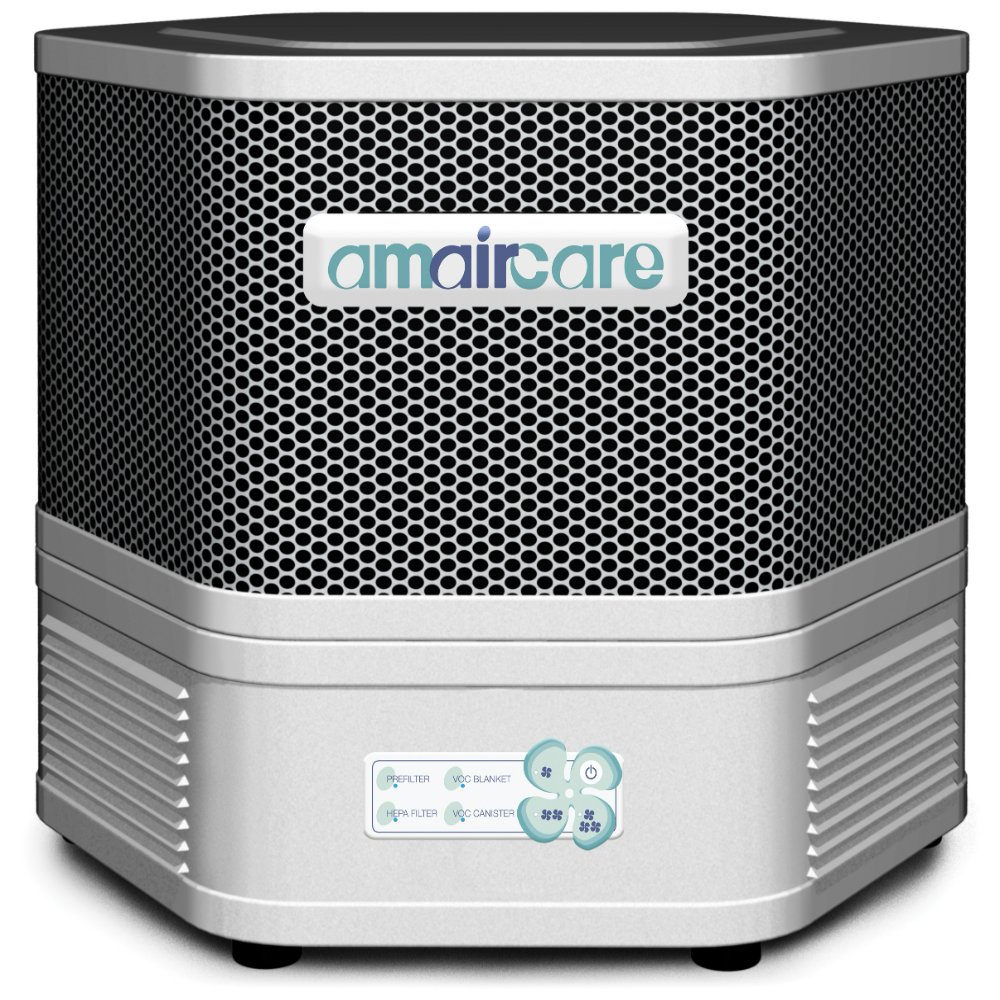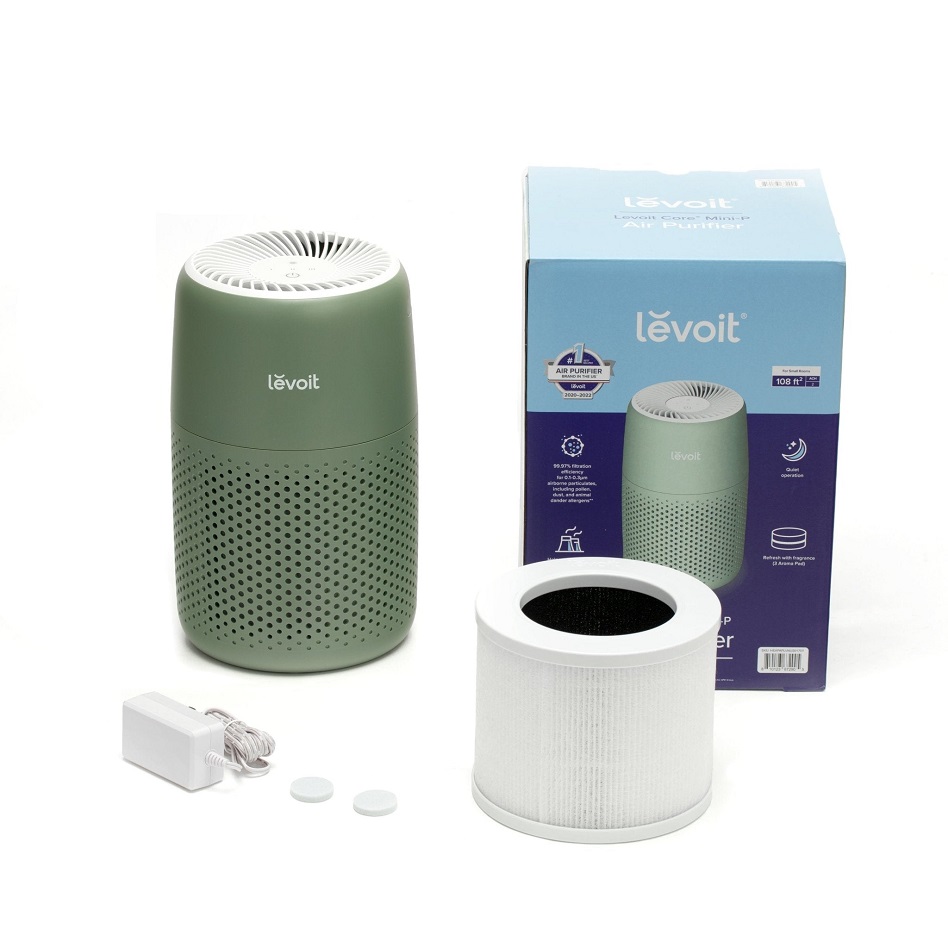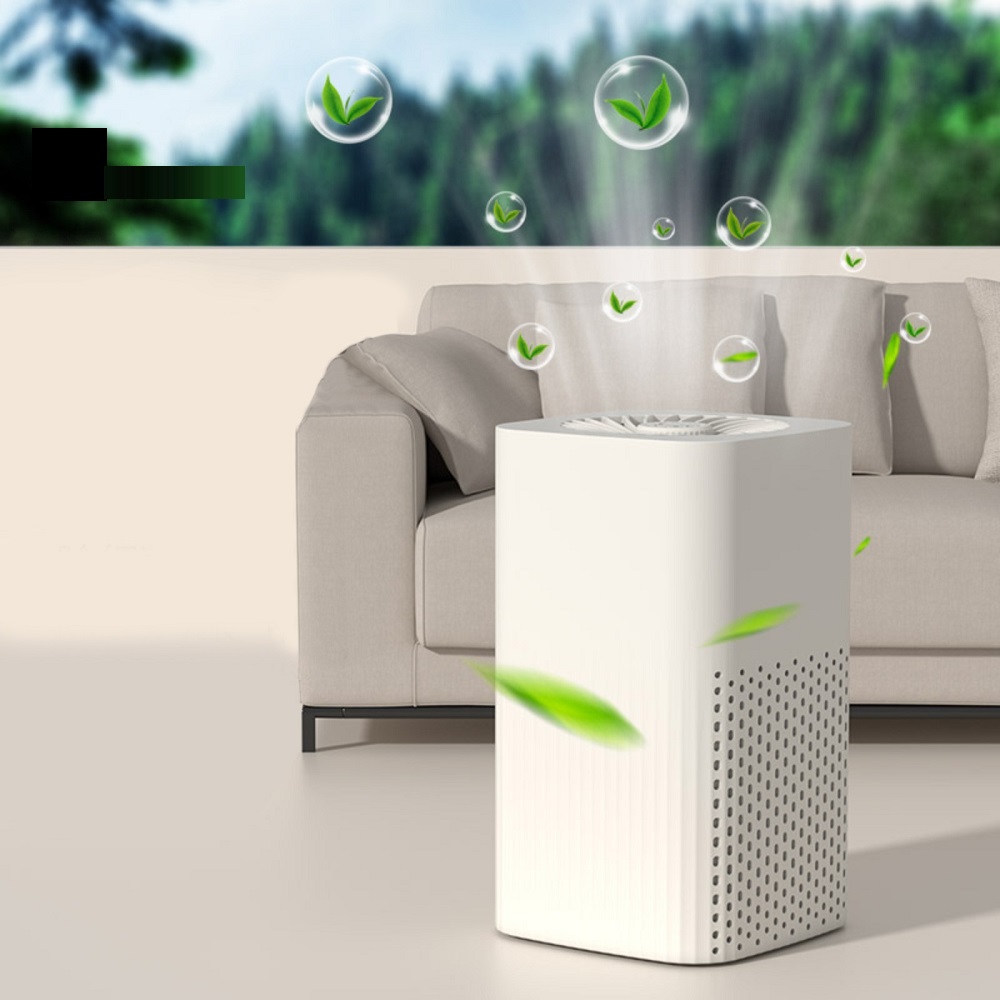Air Purifiers: How They Improve Indoor Air Quality
Air purifier works to enhance the air we breathe. The device uses filters to trap pollutants. It captures dust, pollen, smoke, and more from indoor air. These trapped particles help reduce the risk of respiratory issues. Air purifiers are great for people with allergies or asthma.
An important feature of air purifiers is the HEPA filter. This filter can trap tiny particles, even as small as viruses. Clean air then circulates back into the room. Not only does this improve health, but it also provides cleaner smelling air.
Air purifiers do not add moisture like humidifiers. Instead, they focus solely on removing impurities. They help maintain an environment that feels fresh and free of irritants. Regular use of air purifiers can make a big difference in indoor air quality. This is crucial for comfort and health inside our homes.

Benefits of Air Purifiers for Allergy and Asthma Sufferers
Air purifiers provide significant relief for allergy and asthma sufferers. By trapping allergens like pollen, dust mites, and pet dander, these devices reduce exposure to triggers. This is especially helpful for those who experience heightened symptoms due to poor air quality.
Air purifiers equipped with HEPA filters are particularly effective. They capture extremely small particles, including many allergens. This results in cleaner, healthier air indoors. For asthma sufferers, removing airborne triggers is crucial. This can decrease the frequency of asthma attacks and respiratory discomfort.
Continuous use of air purifiers can create a more breathable environment at home. This is important for reducing the risk of an allergic or asthma attack. Air purifiers do not emit ozone or add moisture. They simply focus on cleaning the air, making them safe for use around sensitive individuals.
Overall, air purifiers play a vital role in managing allergies and asthma indoors. They ensure the air is free of allergens and pollutants, providing comfort and health benefits to sufferers.
Understanding Humidifiers and Their Role in Indoor Air Comfort
Humidifiers add moisture to indoor air. This increased moisture helps alleviate dryness in various ways. During dry seasons, such as winter, indoor heating reduces humidity drastically, making the air uncomfortable. Humidifiers combat this by emitting water vapor or steam, effectively raising the room’s humidity levels.
Humidifiers are not just about comfort; they also have health implications. Proper humidity levels can prevent the drying out of nasal passages and skin. This is crucial for individuals prone to respiratory issues or those who suffer from dry skin conditions. By maintaining an indoor humidity level between 30% and 50%, humidifiers help create a more breathable and comfortable environment.
In addition to respiratory and skin health, appropriate humidity can also benefit sleep quality by reducing congestion and minimizing potential irritants that could disrupt sleep. In areas with naturally dry climates, or in homes where artificial heating is used extensively, having a humidifier can make a significant difference in improving indoor air comfort and overall well-being.

Health Advantages of Humidifiers: Skin, Throat, and Respiratory Relief
Humidifiers play a key role in maintaining a pleasant indoor atmosphere. They add essential moisture to the air, which offers numerous health benefits. Here’s how humidifiers can provide relief for specific conditions:
- For the Skin: It’s well-known that dry air can lead to dry skin. By using a humidifier, you can increase the humidity, which helps to keep your skin hydrated. Regular use can ease dryness, flakiness, and discomfort, leaving the skin feeling soft and smooth.
- For the Throat: When indoor air is too dry, it can cause a sore and scratchy throat. Humidifiers moisten the air we breathe. This helps lubricate the throat, providing relief from soreness and irritation often caused by dryness.
- For Respiratory Health: Dry air can aggravate the airways, making respiratory issues worse. A humidifier adds moisture to the air, which can soothe the airways. This offers comfort to those with coughs, colds, or chronic respiratory conditions like asthma.
Humidifiers are particularly helpful during the winter months. Heating systems used in homes during this time can strip the air of moisture, leading to increased dryness. With a humidifier, balance is restored, resulting in better respiratory health and comfort indoors.
Make sure not to overuse your humidifier. Too much humidity can encourage mold and dust mites. For optimal benefit, maintain indoor humidity levels within the ideal range of 30% to 50%. This will provide the right amount of moisture for your health without causing new problems.
By understanding and leveraging the health advantages of humidifiers, you can create a more comfortable living space while also taking care of your skin, throat, and respiratory health.

Synergy of Using Air Purifiers and Humidifiers Together
Combining air purifiers and humidifiers in your home can offer several advantages. Using both devices together can enhance indoor air quality and comfort. Let’s explore the synergistic benefits of integrating these two appliances into your living space.
- Allergen Reduction and Humidity Balance: Air purifiers effectively remove allergens from the air, while humidifiers maintain a comfortable moisture level. This dual approach can reduce allergy and asthma symptoms while also preventing the discomfort of dry air.
- Comprehensive Health Support: The air purifier’s ability to filter out pollutants complements the humidifier’s role in keeping the airways moist. Together, they promote a healthier environment, especially for those with respiratory conditions.
- Optimal Sleep Environment: By cleaning the air of pollutants and maintaining an ideal humidity level, these devices can create an optimal sleeping atmosphere. This leads to improved sleep quality and potentially less snoring.
- Year-Round Comfort: Combining air purifiers and humidifiers allows you to address seasonal variations in air quality and humidity. This ensures year-round indoor air comfort, regardless of changes in weather or seasons.
- Prevent Over Humidification: Using an air purifier with a humidifier can prevent the excess moisture that encourages mold growth. The air purifier will keep the air clean while the humidifier adds just the right amount of moisture.
By synergizing the benefits of both an air purifier and a humidifier, you can enjoy cleaner, more breathable air along with the ideal humidity needed for overall comfort and health.
Seasonal Considerations: When to Use Air Purifiers and Humidifiers
Knowing when to use air purifiers and humidifiers can enhance your indoor comfort greatly. Different seasons carry different air quality and humidity needs, which these devices can address effectively.
Air Purifiers: Best Seasons for Use
Air purifiers are beneficial year-round, but they’re especially useful during times when air quality worsens. In urban areas, use them during high pollution times like heavy traffic. They are also vital in spring and fall when pollen and mold spores are prevalent. Using air purifiers during these seasons helps keep indoor air clean and free from allergens, making it healthier to breathe.
Humidifiers: When They’re Most Needed
Humidifiers provide the most benefits in dry months, typically during winter. When heaters are used, they dry out indoor air, which can irritate respiratory passages and skin. Adding a humidifier adds necessary moisture back into the air, making it more comfortable and healthier. It’s also feasible to use humidifiers year-round in arid climates to maintain pleasant indoor humidity levels.
Combined Use for Optimal Results
In many scenarios, using both an air purifier and a humidifier together offers the best solution. During the winter, for example, an air purifier can clean the air of indoor pollutants while a humidifier prevents the air from becoming too dry due to heating. This duo ensures that your indoor environment is both clean and comfortably humid, which is great for overall health and well-being.
Air Purifiers and Humidifiers for Babies and Nurseries
Choosing between an air purifier and a humidifier for your baby’s nursery can be challenging. Both devices have specific benefits that support a healthy environment for your little one. Let’s delve into how these devices can contribute to your baby’s comfort and wellbeing.
Air Purifiers: Cleaning the Nursery Air
Air purifiers are essential for keeping the nursery’s air clean. They remove harmful pollutants like dust, smoke, and allergens. This leads to cleaner breathing air for your baby. Reduced exposure to pollutants can lower the risk of respiratory irritations and infections.
Air purifiers with HEPA filters are highly effective for nurseries. They can trap tiny particles, including potential viruses and bacteria. This is crucial to protect your baby’s developing immune system. Cleaner air can also promote better sleep for babies, leading to improved overall health.
Humidifiers: Adding Necessary Moisture
Humidifiers add moisture to the nursery air, preventing dryness that can irritate a baby’s delicate skin and respiratory system. Proper humidity levels can ease dry throats and help your baby breathe more comfortably during sleep.
Using a humidifier during dry months or in arid climates can be beneficial. It helps maintain the right moisture levels in the air. This is important for babies who are prone to dry skin or congestion. Controlled humidity can provide a soothing atmosphere, contributing to calmer sleep for your baby.
Safety Considerations for Babies and Nurseries
When using either device in a nursery, safety is paramount. Always follow the manufacturer’s guidelines for usage and maintenance. For air purifiers, replace filters regularly to ensure continued effectiveness. For humidifiers, clean them frequently to prevent mold and bacteria growth.
Monitoring the humidity level with a hygrometer is also recommended. Maintaining ideal humidity (between 30% and 50%) ensures that the environment is not too moist, which could lead to mold problems.
In conclusion, both air purifiers and humidifiers can be valuable for creating a healthy nursery. Assess your baby’s needs and your home environment to determine if one or both devices could contribute to a safer, more comfortable space for your little one.
Maintenance Tips for Air Purifiers and Humidifiers
Proper maintenance is key for keeping air purifiers and humidifiers working well. Follow these guidelines to ensure they perform effectively:
- Check Filters Regularly: Change air purifier filters as recommended by the manufacturer. A clogged filter reduces efficiency and air quality.
- Clean Humidifiers Often: Empty water from humidifiers after each use. Clean them weekly to prevent mold and bacteria.
- Avoid Overuse of Humidifiers: To prevent mold, keep indoor humidity levels between 30% and 50%. Use a hygrometer to monitor.
- Handle with Care: Be gentle when replacing filters or cleaning units. This avoids damage and maintains optimal function.
- Follow Manufacturer’s Directions: Always adhere to the care instructions provided. This ensures the longevity and safety of your device.
- Unplug Before Cleaning: Disconnect power before performing maintenance. This prevents electrical hazards.
By following these simple maintenance tips, air humidifier vs air purifier can provide lasting benefits, promoting a healthier indoor environment.